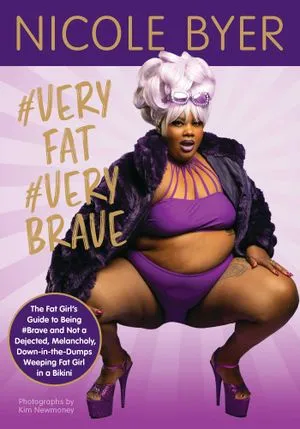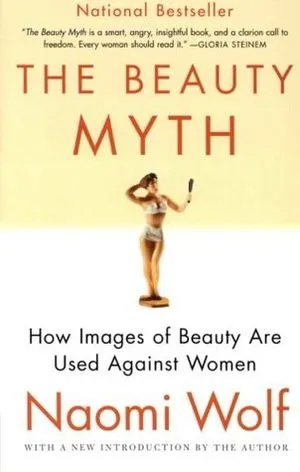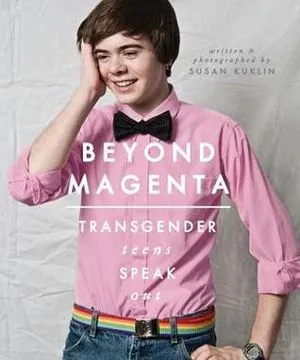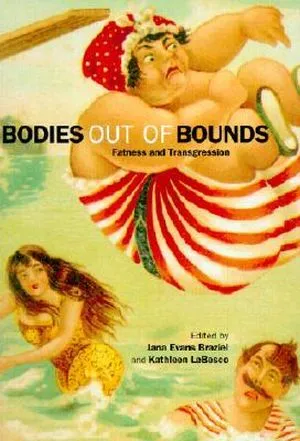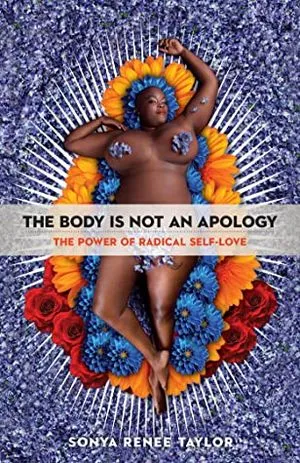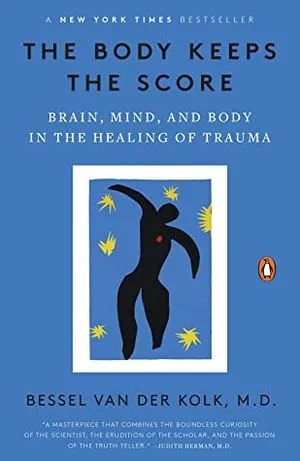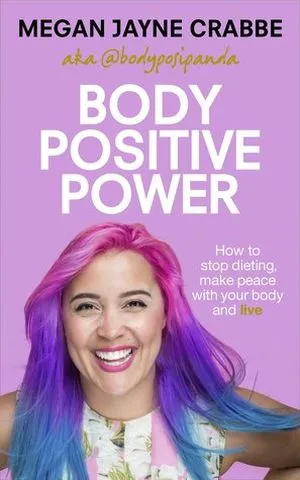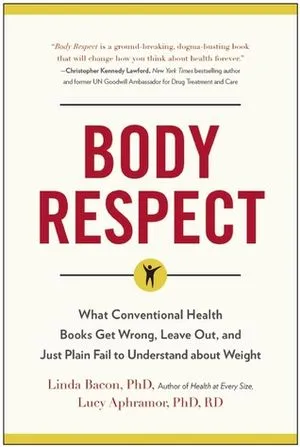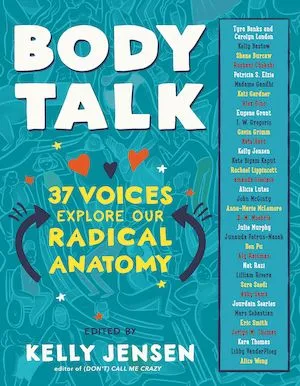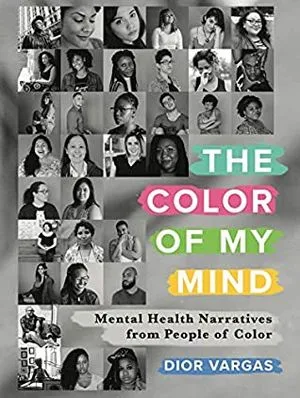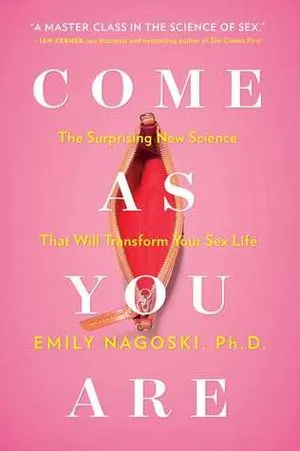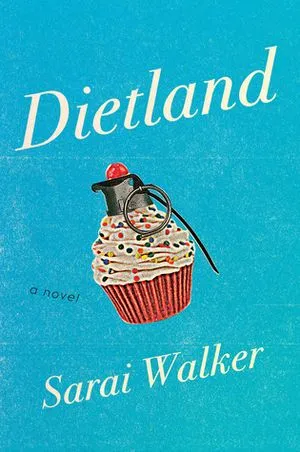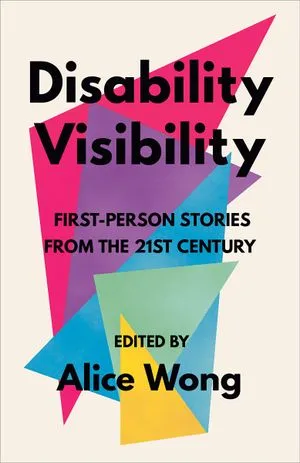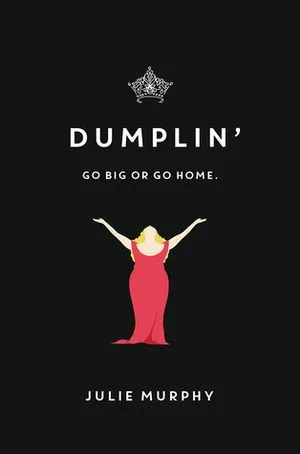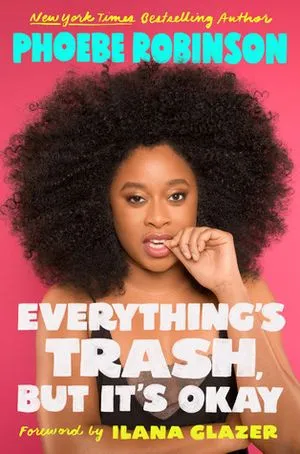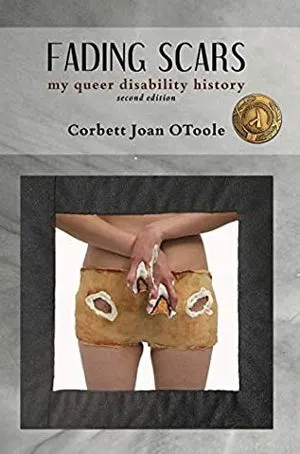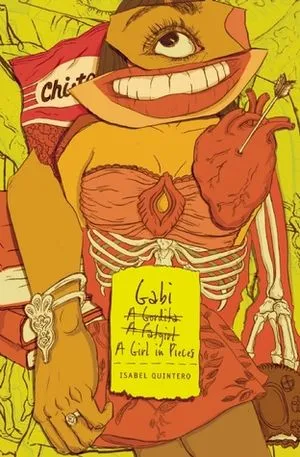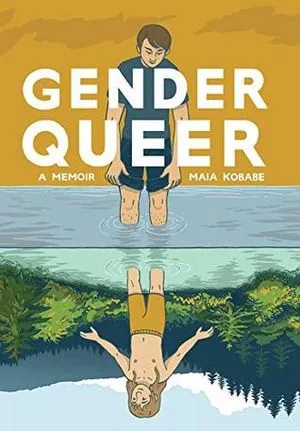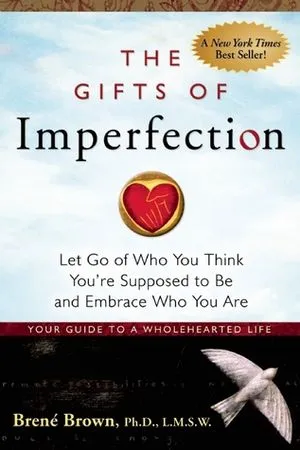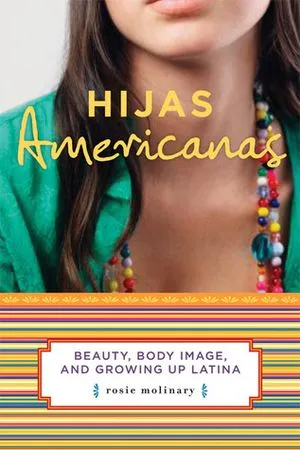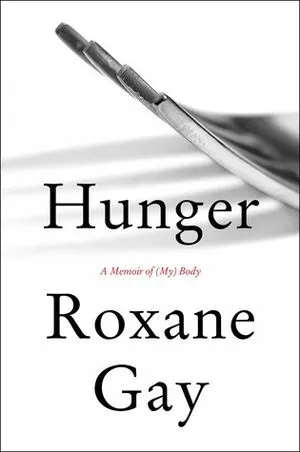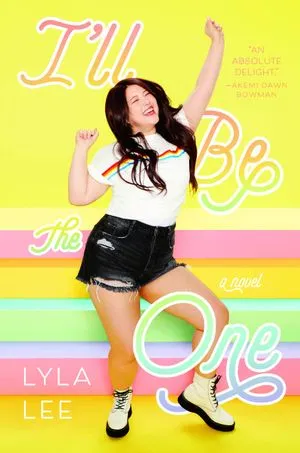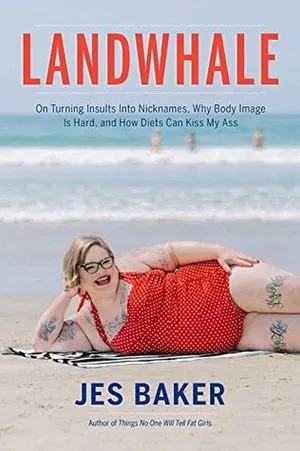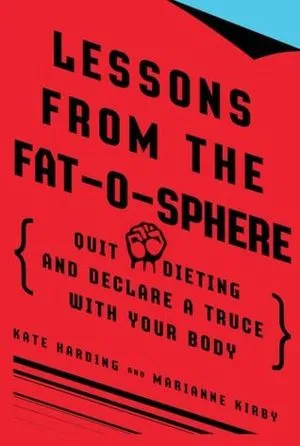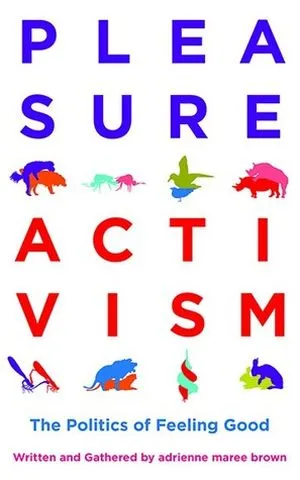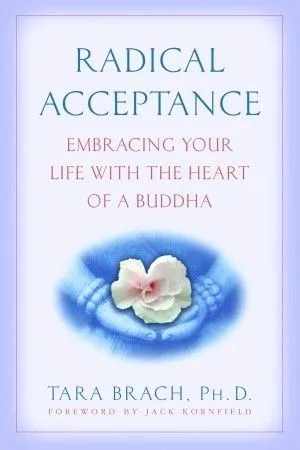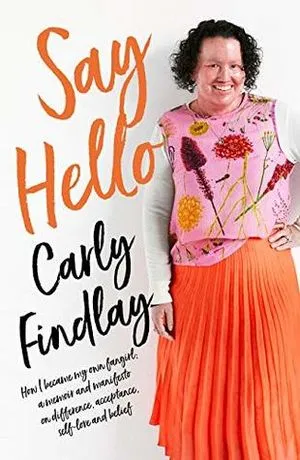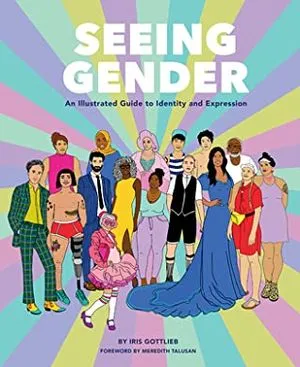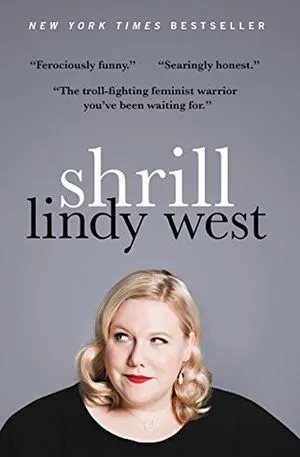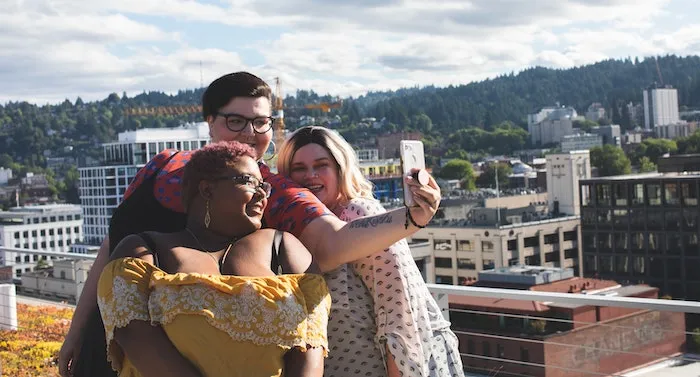
These Are The 30 Best Body Positive Books You Can Read
We’re revisiting some of our favorite posts of 2020 this holiday week! Grab a cup of cocoa and look back on some fun bookish goodness with us as we head toward the new year.
Before highlighting the best body positive books, with a focus on adult and young adult titles, let’s talk about what body positive even means.
What is body positivity?
Body positivity was born from the fat positive movement, a radical and revolutionary movement from the 1960s that spoke up and advocated for the rights of fat people. They revolted against size discrimination.
In the last couple of decades, body positivity has been in vogue. Where fat positivity was specific in goals and aims, body positivity is a more watered down version, based on the idea that all bodies are good bodies and that every person has something—maybe even multiple somethings—they’re not happy with. It doesn’t have to be their size. It can be ears or dimples or toes. Where fat positivity was explicit in its aims, body positivity is much more fluid and open to interpretation, and while it does include fat bodies beneath its meaning, it can and does often overlook bodies outside an “acceptable” range in size, focusing on media-friendly and average-sized bodies.
That’s not to say body positivity isn’t good. It is, and it’s often the first step in how we understand the political nature of our bodies in the West. Body positivity can be a powerful tool in understanding size discrimination, in the capitalization of bodies, as well as acceptance of one’s own body and responsibility in advocating on behalf of bodies deeply unlike their own.
These best body positive books are indeed body positive, but many of them are also radical in their approach to this movement. They might be explicitly fat positive and argue for fat acceptance. They may also be about the power of understanding your own unique body in a way that helps you remember you’re not wrong—what’s wrong is the systemic worshipping of a single image of young, white, cis, healthy, thin, and abled in much of Western pop culture and culture more broadly.
What’s not included on this list of best body positive books are those that exalt diet culture, that offer ways of eating well, or books about exercise or movement. Though books about movement and exercise can absolutely be body positive—think Jessamyn Stanley’s excellent Every Body Yoga—this list takes a bigger picture.
Body positivity, fat activism, and other body-driven political movements require work, and they can sometimes verge on policing feelings one has about their body (see the essay in Body Talk by Book Riot’s own Patricia Elzie to dig into this further). Take these books slow, take notes, highlight, underline, and journal. What do they make you think about? How do they make you feel? None of these books, despite being excellent, will have all of the answers. But it’s through interacting with them actively one becomes better aware of—and more involved with—their own bodies, as well as the bodies of every other human and non-human around them.
The body is political.
Add The Best Body Positive Books To Your TBR
#VeryFat #VeryBrave: The Fat Girl’s Guide to Being #Brave and Not a Dejected, Melancholy, Down-in-the-Dumps Weeping Fat Girl in a Bikini by Nicole Byer
Gotta love how social media has made a fat person in a bikini HASHTAG brave. In this humorous book, Byer digs into how to find that #brave and how it is she manages to be so #brave being a fat woman who loves a good bikini. It is packed with photos of Byer being #brave throughout.
The Beauty Myth by Naomi Wolf
This deep backlist title is a body positive classic for a reason: it continues to resonate.
While women have gained more power socially, one thing has become evident and that is, they’re trapped in this world of feeling the need to perform beauty and style. This is about that spiral of desire for perfection and the ever-shifting goalposts for what that even means.
Beyond Magenta: Transgender Teens Speak Out by Susan Kuklin
What does it mean to be transgender? That question is answered in this book, which highlights the experiences of six teenagers in various states of understanding, developing, and expressing their gender identity. Packed with photos, this book is a reminder that trans experiences are far from universal and every experience is a valid one.
Bodies Out Of Bounds: Fatness and Transgression Edited by Jana Evans Braziel
After World War II, the wars on fat skyrocketed, as did the multi-million dollar diet industry. This essay collection is meant to counter those narratives and dives deep into different experiences of living in a fat body, what it even means to be fat, and where fatness intersections with numerous other identities. Fat is a malleable construct, and the essays here explore the way human bodies in their natural shape diversity become victims of capitalism and more.
Bodymap by Leah Lakshmi Piepzna-Samarasinha
This is a love song by, to, and for disabled queer femmes of color, meant to both empower and validate those lived realities.
The Body Is Not An Apology by Sonya Renee Taylor
It’s rare enough to see a body positive book that doesn’t center white, cishet folks at the center, and not only is Taylor doing that, her message here about body liberation is essential reading.
This is a book about the deeply ingrained body shame each person carries, and it’s about how to step forward from those places into acts of joy, celebration, and freedom in your body.
You will walk away with tools and techniques for better accepting your body exactly as it is.
The Body Keeps The Score by Bessel van der Kolk, MD
Perhaps not exactly the body positivity book one might expect, but because this is a book about the way trauma lives in the body, it’s essential reading for those on the path toward body positivity and liberation.
Dr. van der Kolk is an expert on trauma, and this book is the manifestation of three decades of research on how stress rewires the brain, how it impacts the body, and how it can be passed through families and generations. Also included are ideas for treatment and practices to help free up that trauma and better connect with your body.
Body Positive Power: How Learning to Love Yourself Will Save Your Life by Megan Jayne Crabbe
Do you follow @bodyposipanda? If not, you should, and you should definitely pick up this book about saying goodbye to diet culture and hello to finding ways to love and honor your body exactly as it is. Crabbe struggled with disordered eating, but once she found body positivity and let go of destructive cycles of eating, she knew she had to share what she discovered.
Body Respect: What Conventional Health Books Get Wrong, Leave Out, and Just Plain Fail to Understand About Weight by Linda Bacon and Lucy Aphramor
Obesity is not the public health epidemic that our culture loves to say it is. Rather, the public health epidemic is how much stigma and toxicity there is toward certain types of bodies—and these are what put the lives of those living outside a small margin of the ideal body in real danger.
Bacon is the creator of Health At Every Size (HAES) but this book is a great place to begin, as it debunks myths about weight, misconceptions about BMI, and digs into how poverty, race, homophobia, and more impact all aspects of one’s health.
Body Talk: 37 Voices Explore Our Radical Anatomy Edited by Kelly Jensen
This anthology was edited by me, but I’m not going to talk about my essay here. Rather, this book is packed with incredible work from authors like Julie Murphy, Alex Gino, Roshani Chokshi, as well as writers like Mars Sebastian, Patricia Elzie (Book Riot’s own!), and others who take on topics like body size, the realities of body positivity and its toxic side, about disordered eating, as well as a wide array of physical challenges and disabilities.
Though not explicitly a body positive book, it IS body positive in that it’s a reminder each of us has something we worry about with our body or we each have something unique that we work with and that, indeed, there are hard days, but there are good ones, too.
The Color Of My Mind by Dior Vargas
An incredible, groundbreaking bilingual book featuring the photos and stories of people of color living with mental illness. Any look at body positive books absolutely requires including mental health as part of the conversation.
Vargas, a Latina feminist activist, gives space for everyone to share their stories and experiences—and since mental health IS health, this book is such an empowering reminder that no one who struggles with mental health is alone. The bilingual edition provides even deeper accessibility for readers.
Come As You Are by Emily Nagoski
Those who have vaginas know there are very few books out there about their bodies and sexuality. Nagoski’s book is a powerhouse in empowering and encouraging exploration via science that can help make sex so much more pleasurable.
Human bodies can enjoy pleasure, and this book distills the wheres and hows of doing just that for those with internal reproductive systems—and those who enjoy time with those who do.
Dietland by Sarai Walker
Though the adaptation brought this book to more reader radars, it’s still wildly underappreciated. A radical and subversive story about Plum, a fat woman who gets involved in a guerrilla group that seeks to take down diet culture—and the patriarchy.
Readers who pick this up and obsess with how Plum becomes unlikable feed directly into the point that Walker makes—when you live in a culture that hates you, you direct that anger internally so you can be as palatable in public as you can be. When you choose to direct that anger to the culture of hate, well, you free yourself from those limits and become more fully who you are and are eager to help others do the same.
Disability Visibility Edited by Alice Wong
This year marks the 30th anniversary of the Americans with Disabilities Act. You may or may not know that one out of every five Americans is disabled, whether visible or not, and that number is even more startling for Black Americans, wherein one in every four are disabled. This collection, expertly curated and edited by disability activist Alice Wong, is not only timely, but it’s a vital anthology for readers—abled and disabled—to understand the realities of disability and disability justice today.
Broken into four sections—Being, Becoming, Doing, and Connecting—each of the essays digs into something related to the theme at hand and each piece is tightly written by a wide range of contributors. Some of the names will be familiar while others will be new names, but there’s not a single weak essay in the collection.
Dumplin‘ by Julie Murphy
Willowdean is at home in her skin, even when everyone else seems to think she shouldn’t be. She’s not surprised when she begins falling for a boy at work, but she is surprised when he begins to show interest in her. But rather than feel her confidence sky, this makes her feel less sure of herself.
Solution? Enter to be Miss Clover City and prove that everyone deserves the chance to be a pageant star.
Everything’s Trash, But It’s Okay by Phoebe Robinson
Sometimes the biggest ah-ha moments aren’t delivered in an earnest tone. Sometimes, they come through humor, which is precisely what Robinson’s essay collection does. Essays include pieces about toxic masculinity, society’s nonsense beauty standards, and more.
Fading Scars: My Queer Disability History by Corbett Joan O’Toole
A powerful collection of essays that address about every question abled folks might have about disabled folks and where and how they navigate the world in their bodies. The book explores disability history, justice, and the intersections of race, sex, class, and disability.
Gabi, A Girl in Pieces by Isabel Quintera
Written as a diary of a single year—senior year—of high school, Quintero’s novel focuses on what Gabi goes through on a near-daily basis when it comes to family, friends, boys, her future, and more. Gabi’s voice is fresh and funny, even amid the exceptionally tough things going on in her life.
Gabi is a fat girl in this book, and the way the fat girl story line is worked into the book is so honest and rewarding. Gabi does struggle with her weight and she’s honest about her body and her perceptions of her body, as well as the things other people tell her about her body. But it’s not all doom and gloom. Gabi loves to eat and she’s not ashamed of being a person who loves to eat (she sneaks stuff because of other people’s beliefs about her weight and body). More, though, Gabi isn’t self-deprecating and doesn’t believe a weight loss fundamentally changes her. In fact, there’s no weight loss in here at all. Gabi comes to own who she is AS she is and says that nothing else matters in terms of other people’s perspectives about it. It’s wholly refreshing.
Gender Queer: A Memoir by Maia Kobabe, Colored by Phoebe Kobabe
A graphic memoir about Maia’s journey of self discovery, which includes confusion over crushes in eir adolescence, how to come out to society, and more. The book initially began as a tool for coming out as gender queer to eir family, but it’s as much an expansive look at gender identity as it is a deeply personal one for Maia.
The Gifts of Imperfection by Brené Brown
Utilizing ten guideposts, Brown’s book encourages readers to let go of the expectations society places upon them and instead, live wholeheartedly from a place of vulnerability. Because body shame is something so many struggle with, Brown’s methodology and insights will bring comfort for the fear of never being enough nor never looking the way one believes they should.
Hijas Americanas: Beauty, Body Image, and Growing Up Latina by Rosie Molinary
Molinary’s book explores topics like body image, beauty standards, ethnic identity, and sexuality, all of which are discussed through the lens of over 500 Latina women she surveyed.
Hunger: A Memoir of My Body by Roxane Gay
No list of body positive books would be complete without Roxane Gay on it, and her memoir of her body is an exceptional addition to your reading list. These essays are raw and honest explorations of food, weight, and the realities of living in a body that is larger than average—and seen as anything but normal by the narrow (white, straight) American cultural standards.
I’ll Be The One by Lyla Lee
Skye is a fat, bisexual Korean American girl trying out for the opportunity to become the next K-Pop star. And then she meets Henry, a model with a huge Instagram following, and finds herself falling for him deeply.
There’s a lot here about body image, and specifically, abut body image and Korean cultural norms.
Landwhale by Jes Baker
Baker’s tone throughout her work is irreverent, and this powerhouse memoir is no different. An honest and funny look at growing up as a fat girl, dating as a fat girl, and the terrible ways our culture treats people who are fat.
This is a book about the intersections of capitalism and diet culture and how, no matter what your size, you’re a loser within each of those systems.
Lessons From The Fat-o-Sphere by Kate Harding and Marianne Kirby
Melding research with stories from real women, this book is a look at the ways in which society has demonized fat bodies and why the messages are destructive, vile, and life-threatening. Harding and Kirby are believers in HAES, and there are 27 different ways peppered through the book for how readers can reframe diet culture and body shame.
Pleasure Activism by adrienne maree brown
Rooted in black feminist tradition, brown’s book is a call for social justice to reground itself in pleasure. Voices in the book include some otherwise mentioned on this list, and the book is vast, ranging from exploring sex work to to climate change.
Sex is a huge focus of the book, and contributors are about as diverse as possible, making this book about politics and social justice one that practices exactly what it hopes to convey.
Radical Acceptance by Tara Brach
Right up there with Brené Brown, Brach is another author whose work focuses more on thought and emotional patterns and the ways in which those deeply impact one’s relationships internally and externally.
Brach is a Buddhist therapist, and while her work comes from that perspective, this book will connect with readers who are seeking the tools to accept who they are, exactly as they are right now.
Say Hello by Carly Findlay
If you don’t already follow Findlay’s work or her social media, you should. She is a ray of light who isn’t afraid to be honest, raw, and vulnerable.
Findlay lives with a rare skin condition called Ichthyosis and the visibility of her difference has too often put her in the spotlight for reasons she may not choose to be. The book is her story, as well as a powerful opportunity for Findlay to own who she is, to celebrate disability, and to examine the various layers of privilege in western society.
Seeing Gender: An Illustrated Guide to Identity and Expression by Iris Gottlieb
How can we thoughtfully talk about gender and identity? That’s the core of Gottlieb’s illustrated work, which digs into the science, history, sociology, and personal experiences of understanding and expressing one’s truest identity.
Shrill by Lindy West
West refuses to be small in a world that tells her that’s what she should be. Her debut collection of essays explores everything from being fat on an airplane to daily battles with internet trolls determined to point out that she’s fat (as if she doesn’t know) and does so with biting humor and honesty.
A book about being non-compliant.
This list of the best body positive books is far from comprehensive, and there are a tremendous number of other outspoken, hardworking body activists writing and doing the work. May these books help lead you even more deeply into body positivity, fat positivity, and body liberation.
Itching for more body positive books? You’ll absolutely want to read some of the best books about mental health, as well as excellent books about disability.



